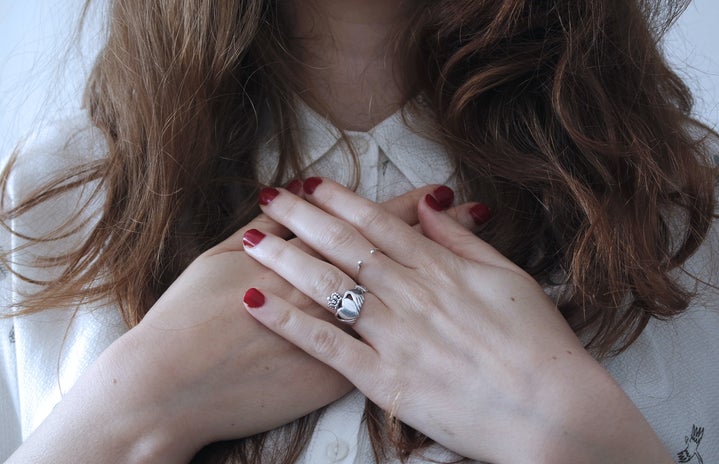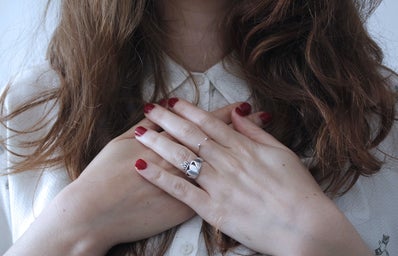Scheduled to hit theatres in March 2024, Disney’s live-action Snow White movie is somehow already causing controversies, and I have a lot of feelings about it.
While a large amount of criticism towards the film is hateful and unnecessary (having to do with Disney’s casting of Rachel Zegler — a Colombian actress, rather than a white one — to play Snow White), some of it, specifically the feminist discourse surrounding it, is actually worth discussing.
Zegler sparked controversy while doing press for the movie. In interviews, she explained how she feels the original movie is “extremely outdated when it comes to the ideas of women being in roles of power and what a woman is fit for in the world” and revealed that the new one is “really not about the love story at all”. Instead, Snow White is “dreaming about becoming the leader she knows she can be”. “We’re no longer in 1937,” she said, “Snow White won’t be rescued by a prince, nor will she be preoccupied with the idea of true love”.
These comments have really angered the internet and prompted a larger discussion about feminism today. Some argue that changing the character and story is anti-feminist but others point out that the original story is outdated. Some think Zegler’s worst transgression is her cringe. Since these comments and the overwhelmingly negative responses first came out, I’ve been wondering what exactly is feminist in this scenario. And to be honest, I’m not quite sure. Let’s talk about it.
Femininity has traditionally been seen as weak in opposition to strong masculinity. And for a long time, women could only fill the traditional feminine roles they were assigned. Deviation from these gender norms was unacceptable. Women were to be quiet and kind, preoccupied with domestic tasks and with their beauty. But, in the second wave of feminism, women began fighting for freedom from this rigid box of acceptable femininity they were confined to. They could take up as much space as men, be strong and self-determining, they could wear what they wanted and occupy spaces and act in ways that were historically reserved for men. But somewhere along the way, we began to see this rejection of traditional femininity as the only way for women to be strong. Strong women didn’t wear makeup or dresses, they didn’t like pink, they didn’t want domesticity or love. And women who did were stuck in the past. They weren’t taking advantage of the steps feminism had taken for them. And so I, like many other women in my generation, grew up thinking that in order to be a strong independent woman, I couldn’t like traditionally feminine things or act in ways associated with femininity.
I think Zegler’s comments fall in line with this kind of thinking. The original Snow White is characterized by her kindness, her gentleness, and her cheer. She fills her days with housework while living with the 7 dwarves, and she wishes for true love. She embodies all of the traits traditionally associated with femininity but this doesn’t make her weak or inherently anti-feminist like Zegler acts. And this is what audiences took issue with. In reality, there is nothing wrong with a woman being gentle, wanting to fall in love, wanting domesticity, or wanting to be saved. She has the choice to decide what she wants for herself, and if she chooses those things, that doesn’t make her inherently less feminist than any other woman. Acting as though rejecting feminine qualities is the only way for a woman to be strong and powerful only continues to perpetuate the false dichotomy between femininity and masculinity, weakness, and strength. Fans are angry that Zegler would suggest that the issue with the original Snow White is her femininity. Women shouldn’t have to reject femininity in order to be good role models (unless they want to, of course). And I agree. Feminism is about breaking down stereotypes, yes, but it’s also about allowing women to define their own identities and roles, whatever that means for them. To suggest that the original film is anti-feminist because of the femininity of the main character is, well, anti-feminist. And stripping the character of feminine qualities in the name of feminism and to give her strength goes completely against what feminism should truly be fighting for because femininity is not antithetical to strength.
However, the original Snow White isn’t without its flaws, and it definitely isn’t a feminist film. The movie gives Snow White absolutely no agency and Zegler’s right: the prince “literally stalks her” and kisses her while she’s unconscious on the forest floor. The story shouldn’t remain unchanged if Disney wants to modernize it. Fans are absolutely right in criticizing Zegler’s insinuation that the princess’s feminine qualities make her un-feminist and weak, but we need to stop pretending like the film was feminist to begin with, because it wasn’t. It focuses principally on a woman’s beauty as a determinant for what makes her good and neglects the importance of consent. Audiences need to stop pretending that the story would be perfect today if left untouched, because it simply wouldn’t. Disney instead should focus on finding a balance between honouring the original character’s essence and righting outdated aspects, especially concerning issues of consent and agency.
In addition, there is nothing feminist about the way Zegler is being treated online. Young women in the public eye are often held to high standards of perfection. It often seems that our reaction as a society to a young woman on our screens will always be to pick her apart and ruthlessly criticize her. The response to Zegler’s comments has been overwhelmingly negative, and she’s even received death threats. And rather than simply saying they don’t like the content of her comments, people seem to be more focused on how they find her annoying and abrasive — words used time and time again to shut down young women. We seem to be, yet again, falling into the trap of tearing down young women for sport, because it’s entertaining. Absolutely nobody batted an eye when Robert Pattinson openly discussed how he didn’t like Twilight or when Channing Tatum said he “f***ing [hated]” GI Joe, but when Zegler criticized the older version of her film, fans called her ungrateful and obnoxious. To make matters worse, these probably aren’t even lines Zegler is coming up with by herself. Most likely, the publicists of the movie have determined how they want her to sell it, and she’s merely following orders. Acting with such intense hate towards a young woman isn’t feminist, but paradoxically, people say they’re acting in the name of feminism.
In the midst of all this controversy, there lies some truth. Taking away a character’s traditionally feminine qualities with the goal of making her appear stronger or a better role model is not a feminist action, because traditional femininity is not contradictory to strength or ‘good’ feminism. At the same time, mercilessly attacking and tearing down a young woman for being cringe isn’t one either. Have I given too much thought to this whole situation? Maybe. But I think it’s worth it.


